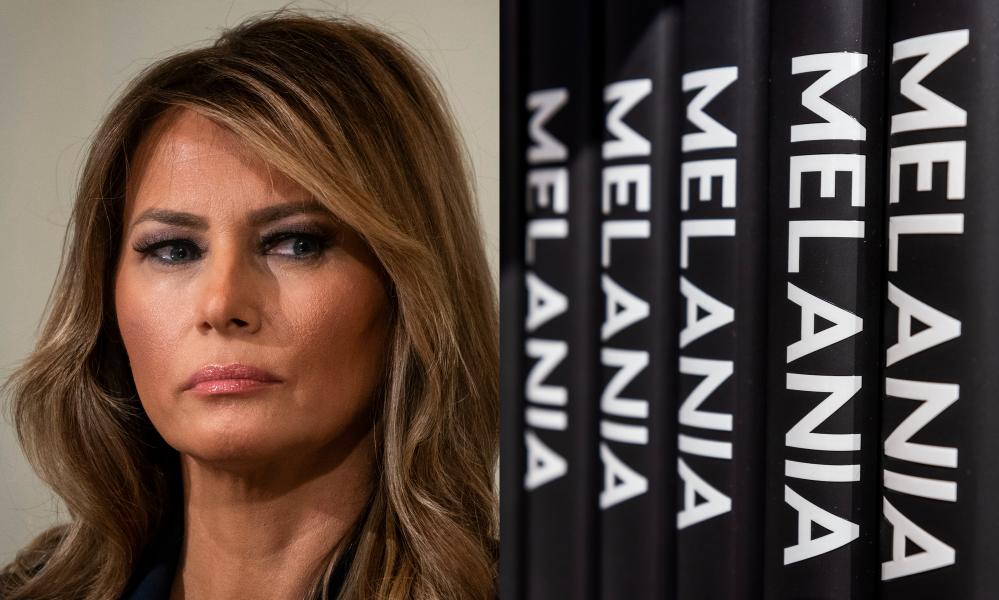Melania Trump’s memoir, titled simply “Melania,” spans 180 pages that primarily focus on evading responsibility and deflecting criticism. In her narrative, the former First Lady deflects blame for the notorious incident of plagiarizing Michelle Obama’s speech at the 2016 Republican National Convention onto her staff, while simultaneously declaring her love for her husband, Donald Trump, despite expressing disdain for dishonesty. She makes a bold statement about abortion being a fundamental right but fails to confront Donald Trump’s involvement in dismantling that very right through Supreme Court appointments. The memoir raises questions about her motivations for publishing it so close to an election and whether her policy stance might align more with Kamala Harris than her own husband, the former president.
Several significant issues are notably absent from her memoir. Melania does not address problematic aspects of Donald Trump’s life, including the controversies involving women like E Jean Carroll and Stormy Daniels, nor does she comment on Trump’s other children from previous relationships. There is little mention of Ivanka Trump, her husband’s first daughter, who has often been a focal point given her complicated relationship with both her father and Melania. Despite her claims of personal attachment to her own son, Barron, and her parents, Melania keeps her distance from discussing the broader Trump family dynamics, choosing instead to focus on her solitary narrative.
Interestingly, unlike other high-profile White House memoirs, Melania refrains from acknowledging any contributors to her work. While Jared Kushner’s book included thanks to various individuals, her memoir lacks such recognition, suggesting she may have had assistance despite her claims of independence. The book includes 64 pages of photographs, starting with her passport upon entering the U.S. in 1996 and concluding with a digital collectible available on a personal website. In these visuals, Melania promotes her brand, emphasizing financial independence as a core value and portraying her business ventures as symbols of empowerment for women.
Melania’s commentary on political issues has sparked discussions, particularly regarding her stance on abortion. She vehemently argues for women’s autonomy concerning reproductive choices, stating that restricting this right equates to denying control over one’s own body. These declarations seem contradictory in light of the Republican Party’s recent actions, including the stripping of constitutional rights relating to abortion. Moreover, the absence of any mention of Dobbs v. Jackson, the Supreme Court case that eliminated federal protections for abortion access, amplifies the disconnect between her stated beliefs and her political environment.
The memoir also includes Melania’s reflections on the plagiarism incident involving her 2016 RNC speech. She takes a dual approach by reprimanding her staff while also acknowledging her own familiarity with Michelle Obama’s original remarks. Melania reveals her rehearsals and her shock when allegations of plagiarism surfaced, expressing frustration over what she perceives as a lack of proper vetting. This portrayal ultimately casts her as both a victim of circumstance and a participant in her narrative, demonstrating her practice of distancing herself from accountability while seeking to rehabilitate her image.
Lastly, Melania’s response to the tumult surrounding the January 6 Capitol riots proves to be minimal. Her remarks condemn the violence, but she quickly suggests that many individuals felt justified due to perceived electoral injustices. Much to the dismay of her critics, she does not address Donald Trump’s role in inciting the events leading to that day, instead choosing to engage more critically with protests against racial injustice that followed George Floyd’s murder. Her selective emphasis in discussing social issues reflects a deeper avoidance of direct engagement with the most controversial aspects of her husband’s presidency, suggesting that her memoir might serve to protect her image rather than provide an honest account of her experiences and beliefs.

